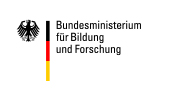High Frequency Microsystems
Module group: System Design
The students identify different areas of application for compact high-frequency systems and microwave systems in telecommunication and sensors.
On-campus lectures:
- new dates will be announced
The Description of the module you find here.
- High Frequency Microsystems: Overview
- Ambient Intelligence as a High Frequency Microsystem Use Scenario
- Wireless Sensor Networks Scenario
- Trends in the Semiconductor Industry
- Semiconductor technologies for micro- and millimeter-wave ICs (MMICs)
- MMIC design methodologies
- Packaging Technologies for High Frequency Microsystems
- Packaging and Interconnect Parasitics
- Technology of Micro-Electro-Mechanical Structures for Radio Frequency Applications (RFMEMS)
- RFMEMS Components
- RFMEMS/BiCMOS Integration
- Final Case Study: 30 GHz Active Antenna System
- Virtual Design Practice
Students identify various areas of application for compact high-frequency and microwave systems in telecommunication and sensors. You will analyse the application and determine requirements to the housing technology and connective technology under special requirements of high operating frequencies. Based on simple case studies, you will identify advantages and disadvantages of “System-On-Chip”, as well as a “System-In-Package” approach and identify possible uses for micro-electro-mechanical components in high-frequency microsystems. Finally, students will evaluate a complex case study that looks at circuit technology, assembly technology, and micromechanical components in their interaction within microsystems.
The online part of the study programme takes place in self-study and in the form of group work. For the self-study part of the programme, video lectures with detailed information about the contents and an elaborate script are offered. The script has been developed specifically for extra-occupational learners in regard to the didactic concept of Ulm University. It contains breaks for independent study, multiple and single choice tests, quizzes, exercises, etc.
Your mentor will offer online seminars in periodic intervals. These seminars will help you handle the exercises and work on the learning topics.
An online forum for the exchange with other students will also be available.
Requirement is a first academic degree.
Contents: in order to successfully participate in this module, you will need foundations in electrical engineering, calculations of complex alternating currents, and fundamentals in analog electronics.
Recommended requirements:
- Desktop computer or notebook, with a supported version of Microsoft Windows, Apple macOS or Linux
- Headset
- Current version of Mozilla Firefox, Google Chrome, Apple Safari or Microsoft Edge
- Access to the internet (e.g., via xDSL, Cable, LTE, 5G) with a minimum data rate of 3 Mbit/s for downstream and 384 kbit/s for upstream.
In case of questions regarding the technical requirements, please don't hesitate to contact us.
Regular participation in online forums helps you with the continuous exercises. In order to attend the module exam, you need to pass the design exercises. The module exam is oral and consists of seminar lecture plus discussion. For detailed information please refer to the module description in the module manual.
After finishing the module successfully, you will get a certificate and a supplement, which will list the contents of the module and the competencies you have acquired. The supplement confirms the equivalent of 6 credit points (ECTS).
Dozent

Prof. Dr.-Ing. Hermann Schumacher
Institute of Electron Devices and Circuits
Mentor
Steven El-Bittar
Institute of Electron Devices and Circuits

Gefördert von:



